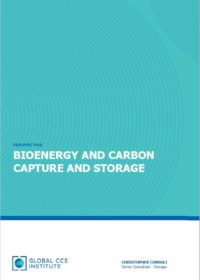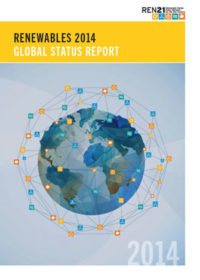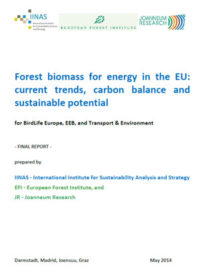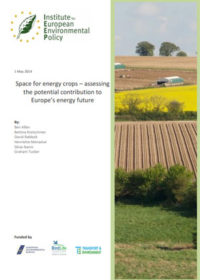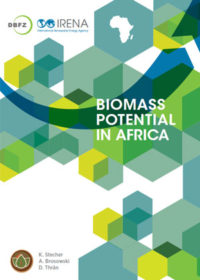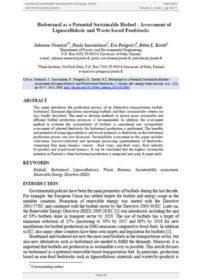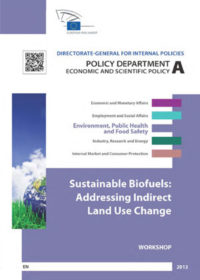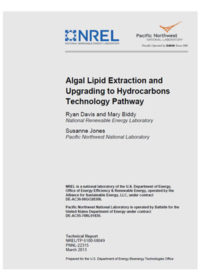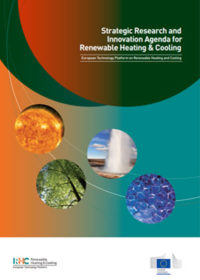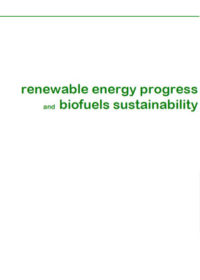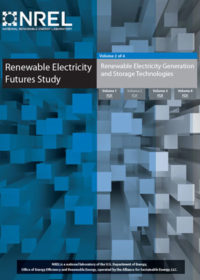Resources
Publications
Our publications, reports and research library hosts over 500 specialist reports and research papers on all topics associated with CCS.
View our Publication Library Disclaimer.
Filter by
The LCFS and CCS Protocol: An Overview for Policymakers and Project Developers
24th May 2019
Organisation(s): Global CCS Institute
Topic(s): Biofuels / Bioenergy, CCS protocol, Policy law and regulation, United States
The Global CCS Institute has launched a report analyzing California’s recently passed carbon capture and storage protocol. The report provides a summary of the regulation for project developers and policymakers in other states and countries, given the Protocol's global applicability. While comparing it to other relevant regulations – including the federal carbon capture tax credit also known as 45Q – the report seeks to raise awareness for the opportunities created through the protocol and to advance deployment opportunities.
The protocol incentivizes carbon capture and storage projects reducing the lifecycle emissions from bioethanol, hydrogen, and crude, provided the fuel is sold into the California market, as well as direct air capture projects globally.
Bioenergy and Carbon Capture and Storage
14th March 2019
Organisation(s): Global CCS Institute
Topic(s): Bioenergy with carbon capture and storage (BECCS), Biofuels / Bioenergy, Negative emissions technologies
After almost thirty years of climate change negotiations, global CO2 levels are still rising (NOAA, 2018). The UNFCCC Paris Agreement goals of holding global warming to ‘well-below’ 2°C and to ‘pursue efforts’ to limit it to 1.5°C are in stark contrast to the ever-dwindling carbon budget.
The evidence makes it clear. CO2 needs to be removed from the atmosphere, known as carbon dioxide removal (CDR), using negative emissions technologies (NETs) to meet global warming targets. Bioenergy with carbon capture and storage (BECCS) is emerging as the best solution to decarbonise emission-intensive industries and sectors and enable negative emissions.
This Perspective from Christopher Consoli, Senior Consultant - Storage, explores this technology and its deployment as a climate mitigation solution.
Renewables 2014: global status report
3rd June 2014
Topic(s): Biofuels / Bioenergy, Economics, Geothermal energy, Global Status Report, Hydroelectricity, Marine energy, Policy law and regulation, Renewables, Solar energy, Wind energy
REN21’s Renewables Global Status Report provides a comprehensive and timely overview of renewable energy market, industry, investment, and policy developments worldwide. It enables policymakers, industry, investors, and civil society to make informed decisions.
The report covers recent developments, current status, and key trends; by design, it does not provide analysis or forecast.
The Renewables Global Status Report relies on up-to-date renewable energy data, provided by an international network of more than 500 contributors, researchers, and authors.
Disclaimer
The content within the Global CCS Institute Publications, Reports and Research Library is provided for information purposes only. We make every effort and take reasonable care to keep the content of this section up-to-date and error-free. However, we make no claim as to its accuracy, currency or reliability.
Content and material featured within this section of our website includes reports and research published by third parties. The content and material may include opinions and recommendations of third parties that do not reflect those held by the Global CCS Institute.
Forest biomass for energy in the EU: current trends, carbon balance and sustainable potential
1st May 2014
Topic(s): Biofuels / Bioenergy, Renewables
Forest biomass for energy in the EU: current trends, carbon balance and sustainable potential describes a study that aimed to clarify possibilities and implications of woody bioenergy supply for the natural environment and climate for the European Union by 2020 and 2030.
The study estimated the amount of forest-derived and woody biomass that could be sustainably supplied for energy uses without compromising material uses of wood. Particular attention was given to the biodiversity and GHG emissions implications of woody bioenergy supply.
The role of sustainable woody bioenergy in the future EU energy system was analysed for electricity, heat and transport fuels, taking into account the potentials for energy efficiency, and non-bioenergy renewables.
This final report was commissioned by BirdLife Europe, European Environmental Bureau (EEB), and Transport & Environment. The publication is co-authored by International Institute for Sustainability Analysis and Strategy (IINAS), European Forest Institute (EFI) and Joanneum Research (JR).
Disclaimer
The content within the Global CCS Institute Publications, Reports and Research Library is provided for information purposes only. We make every effort and take reasonable care to keep the content of this section up-to-date and error-free. However, we make no claim as to its accuracy, currency or reliability.
Content and material featured within this section of our website includes reports and research published by third parties. The content and material may include opinions and recommendations of third parties that do not reflect those held by the Global CCS Institute.
Space for energy crops – assessing the potential contribution to Europe’s energy future
1st May 2014
Topic(s): Biofuels / Bioenergy, Renewables
The Institute for European Environmental Policy produced this report for BirdLife Europe, European Environmental Bureau, and Transport & Environment.
The focus of this report is on the potential for further energy crop production from dedicated crops in Europe on land not already used for food production, forestry, or other uses of social value, including nature conservation. There is already production of crops for energy purposes in Europe, including oilseed rape for biodiesel. But this report addresses how much additional production might be achieved, given the limitations in land availability that the authors have assumed.
Disclaimer
The content within the Global CCS Institute Publications, Reports and Research Library is provided for information purposes only. We make every effort and take reasonable care to keep the content of this section up-to-date and error-free. However, we make no claim as to its accuracy, currency or reliability.
Content and material featured within this section of our website includes reports and research published by third parties. The content and material may include opinions and recommendations of third parties that do not reflect those held by the Global CCS Institute.
Biomass potential in Africa
17th June 2013
Topic(s): Biofuels / Bioenergy, Capacity development, Renewables
This report focuses on bioenergy in Africa, as this form of renewable energy represents almost 50% of the total primary energy supply for the African continent, and more than 60% of the Sub-Saharan TPES. Bioenergy is a strategic asset for Africa’s energy future and needs to be assessed in a transparent manner.
At IRENA’s behest, the German Biomass Research Centre has collected recent studies assessing bioenergy potential in Africa, compared their various methodologies, benchmarked the results, and identified the key dimensioning elements for those assessments.
Disclaimer
The content within the Global CCS Institute Publications, Reports and Research Library is provided for information purposes only. We make every effort and take reasonable care to keep the content of this section up-to-date and error-free. However, we make no claim as to its accuracy, currency or reliability.
Content and material featured within this section of our website includes reports and research published by third parties. The content and material may include opinions and recommendations of third parties that do not reflect those held by the Global CCS Institute.
Biobutanol as a potential sustainable biofuel – assessment of lignocellulosic and waste-based feedstocks
15th April 2013
Topic(s): Biofuels / Bioenergy, Renewables
This paper, from Journal of Sustainable Development of Energy, Water and Environment Systems, introduces the production process of an alternative transportation biofuel, biobutanol.
European legislation concerning biofuels and their sustainability criteria are also briefly described. The need to develop methods to ensure more sustainable and efficient biofuel production processes is recommended. In addition, the assessment method to evaluate the sustainability of biofuels is considered and sustainability assessment of selected feedstocks for biobutanol production is performed. The benefits and potential of using lignocellulosic and waste materials as feedstocks in the biobutanol production process are also discussed. Sustainability assessment in this paper includes cultivation, harvest/collection and upstream processing (pretreatment) of feedstocks, comparing four main biomass sources: food crops, non-food crops, food industry by-product and wood-based biomass. It can be concluded that the highest sustainable potential in Finland is when biobutanol production is integrated into pulp & paper mills.
Disclaimer
The content within the Global CCS Institute Publications, Reports and Research Library is provided for information purposes only. We make every effort and take reasonable care to keep the content of this section up-to-date and error-free. However, we make no claim as to its accuracy, currency or reliability.
Content and material featured within this section of our website includes reports and research published by third parties. The content and material may include opinions and recommendations of third parties that do not reflect those held by the Global CCS Institute.
Sustainable biofuels: addressing indirect land use change
1st March 2013
Topic(s): Biofuels / Bioenergy, Domestic policy, Policy law and regulation, Renewables
This report outlines the outcomes of a European Parliament workshop held in Brussels on 20 February 2013, hosted by Directorate-General for Internal Policies. The workshop consisted of an exchange of views with representatives of EU institutions, research institutes, biofuels industry, NGOs and other stakeholders. The first part presented the European Commission's proposal and provided scientific input on the assessment of the impacts of indirect land-use change (ILUC). The second part introduced policy options and future perspectives from the point of view of industry and NGOs.
Disclaimer
The content within the Global CCS Institute Publications, Reports and Research Library is provided for information purposes only. We make every effort and take reasonable care to keep the content of this section up-to-date and error-free. However, we make no claim as to its accuracy, currency or reliability.
Content and material featured within this section of our website includes reports and research published by third parties. The content and material may include opinions and recommendations of third parties that do not reflect those held by the Global CCS Institute.
Algal lipid extraction and upgrading to hydrocarbons technology pathway
1st March 2013
Topic(s): Biofuels / Bioenergy, Renewables
The United State’s National Renewable Energy Laboratory (NREL) and the Pacific Northwest National Laboratory (PNNL) are undertaking studies of biomass conversion technologies to identify barriers and target research toward reducing conversion costs.
This technology pathway case investigates the cultivation of algal biomass followed by further lipid extraction and upgrading to hydrocarbon biofuels. Technical barriers and key research needs have been assessed in order for the algal lipid extraction and upgrading pathway to be competitive with petroleum-derived gasoline-, diesel-, and jet-range hydrocarbon blendstocks.
Disclaimer
The content within the Global CCS Institute Publications, Reports and Research Library is provided for information purposes only. We make every effort and take reasonable care to keep the content of this section up-to-date and error-free. However, we make no claim as to its accuracy, currency or reliability.
Content and material featured within this section of our website includes reports and research published by third parties. The content and material may include opinions and recommendations of third parties that do not reflect those held by the Global CCS Institute.
Strategic research and innovation agenda for renewable heating & cooling
1st March 2013
Topic(s): Biofuels / Bioenergy, Geothermal energy, Renewables, Solar energy
The European Technology Platform on Renewable Heating and Cooling produced this document to address the short, medium and longer term research and development needs in the field of renewable heating and cooling technologies. The authors identify research priorities for biomass, geothermal, solar thermal and cross cutting technologies. This document sets out the likely directions of technological and organisational changes that will need to be converted into specific research activities over the next years. Furthermore, it aims to facilitate the coordination of other research programmes in and between member states.
Disclaimer
The content within the Global CCS Institute Publications, Reports and Research Library is provided for information purposes only. We make every effort and take reasonable care to keep the content of this section up-to-date and error-free. However, we make no claim as to its accuracy, currency or reliability.
Content and material featured within this section of our website includes reports and research published by third parties. The content and material may include opinions and recommendations of third parties that do not reflect those held by the Global CCS Institute.
Renewable energy progress and biofuels sustainability
1st October 2012
Topic(s): Biofuels / Bioenergy, Renewables
A consortium led by Ecofys was contracted by the European Commission to perform support activities concerning the assessment of progress in renewable energy and sustainability of biofuels.
Disclaimer
The content within the Global CCS Institute Publications, Reports and Research Library is provided for information purposes only. We make every effort and take reasonable care to keep the content of this section up-to-date and error-free. However, we make no claim as to its accuracy, currency or reliability.
Content and material featured within this section of our website includes reports and research published by third parties. The content and material may include opinions and recommendations of third parties that do not reflect those held by the Global CCS Institute.
Renewable electricity futures study. Volume 2: renewable electricity generation and storage technologies
1st June 2012
Topic(s): Biofuels / Bioenergy, Geothermal energy, Hydroelectricity, Marine energy, Renewables, Solar energy, Wind energy
The Renewable Electricity Futures Study (RE Futures) is an initial investigation of the extent to which renewable energy supply can meet the electricity demands of the contiguous United States over the next several decades. This volume - Volume 2 - describes the renewable generation and storage technologies included in the study. Each technology is introduced, followed by estimates of resource availability, a characterisation of the technology, a list of output characteristics and grid service possibilities, a description of deployment, and a discussion of barriers and issues.
Disclaimer
The content within the Global CCS Institute Publications, Reports and Research Library is provided for information purposes only. We make every effort and take reasonable care to keep the content of this section up-to-date and error-free. However, we make no claim as to its accuracy, currency or reliability.
Content and material featured within this section of our website includes reports and research published by third parties. The content and material may include opinions and recommendations of third parties that do not reflect those held by the Global CCS Institute.

